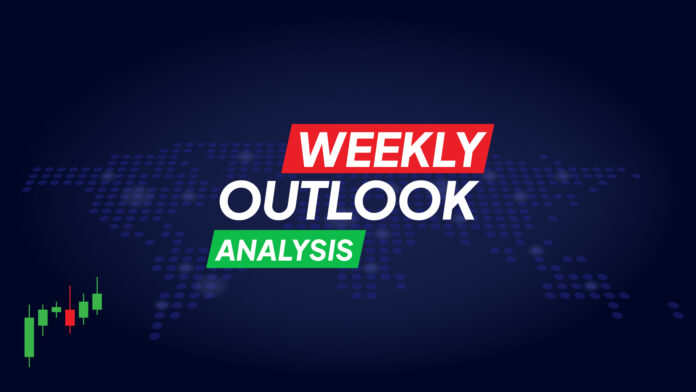The financial markets are gearing up for a pivotal week ahead, filled with political and economic developments that could drive volatility across currencies, equities, and commodities. From the German elections’ impact on the euro to the critical US PCE inflation data, traders and financial professionals will want to keep a close eye on these key events.
For additional insights into market movements, explore our educational hub, where you can access updated financial data, analysis, and trading resources.
Key Points to Watch Out For:
- Germany goes to the polls, but it is unlikely that the far-right AfD will form a government.
- German CPI data may be a more influential factor for the euro.
- US inflation is also in the spotlight, pending the PCE report.
Will German Elections Influence the Euro’s Direction?
On Sunday, February 23, Germany heads to the polls for its early general elections. While a significant political shift could alter the economic landscape, expectations remain somewhat tempered. Current polls suggest the CDU/CSU bloc will win the most seats, but with the far-right Alternative for Germany (AfD) and far-left parties gaining traction, coalition negotiations might get tricky. All major parties have ruled out alliances with the AfD.
If the CDU/CSU forms a coalition with Olaf Scholz’s SPD party by Monday, February 24, traders may anticipate a modest euro rebound. However, if the AfD secures second place or influences legislation, markets could react negatively, sending the euro lower amid concerns over political instability. A negotiated coalition focusing on reforming Germany’s debt brake rule—currently capping the structural budget deficit at 0.35% of GDP—could provide a more supportive environment for euro gains.
Key Economic Data to Watch in Europe
Beyond elections, economic data will feature prominently in shaping the euro’s movement. Germany’s Ifo Business Sentiment Survey on February 24 could strengthen the euro if business confidence rises, while a decline may signal a weakening German economy. Preliminary German CPI data on February 28 will carry significant weight, as a stronger CPI reading could challenge the consensus of multiple rate cuts by the European Central Bank (ECB). Additionally, the ECB’s January meeting minutes, set for release on February 27, may provide insights into inflationary risks and further influence sentiment.
US Inflation Takes Center Stage
In the US, inflation data will take the spotlight, particularly the Core PCE Price Index set for release on February 28. This reading offers critical insight into the Federal Reserve’s preferred inflation gauge. Core PCE is forecasted to decline to 2.7% from 2.8%, while headline PCE is expected to drop to 2.5%. If inflation figures align with expectations or lower, it could revive hopes for two 25-basis-point rate cuts in 2024, softening the US dollar. Other key US data to watch includes Consumer Confidence on February 25, New Home Sales on February 26, Durable Goods Orders and Pending Home Sales on February 27, and the Q4 GDP Second Estimate on February 27. Geopolitical risks, such as US-Europe trade relations or tensions with Ukraine, may also drive demand for safe-haven assets like the greenback.
Global Economic Updates
In Australia, CPI data on February 26 could sway the Australian dollar (AUD) if it signals stronger-than-anticipated price pressures, reducing expectations of more rate cuts by the Reserve Bank of Australia. In Japan, key data like the Tokyo CPI Estimates and Services Producer Price Index will provide insight into Japan’s inflationary trajectory, potentially boosting the yen if persistent inflation points to further policy tightening by the Bank of Japan. Canada’s Q4 GDP growth results on February 28 will impact central bank rate expectations. Strong growth could bolster the Canadian dollar (CAD) as the Bank of Canada may lean toward maintaining its current interest rate policy.
Market Outlook
The week of February 24-28 is shaping up to be a crucial period for global markets, with key events such as the German elections, eurozone inflation data, and the US PCE report driving potential volatility. With geopolitical tensions still influencing investor sentiment, safe-haven currencies like the US dollar (USD) and Japanese yen (JPY) may see movement. To confidently trade during these pivotal market moments, equip yourself with expert insights from OnEquity’s educational hub. Master trading strategies, economic indicators, and much more to stay ahead in volatile markets.
Risk Disclosure
Markets are unpredictable, and trading carries inherent risks. Ensure you fully understand these risks before making investment decisions.
Take Action Today
Stay ahead of the markets with OnEquity. Visit onequity.com to explore our award-winning trading platform, access real-time market insights, and take your trading to the next level.



